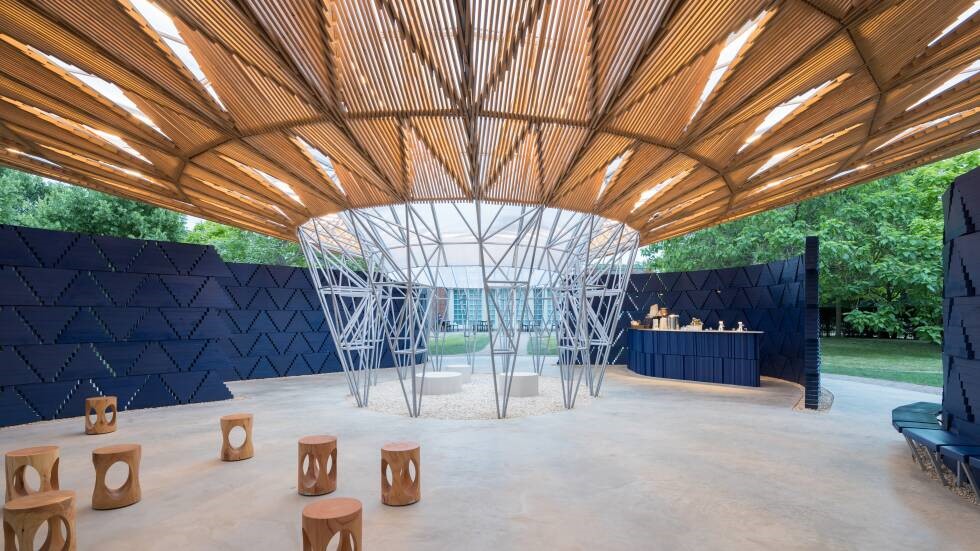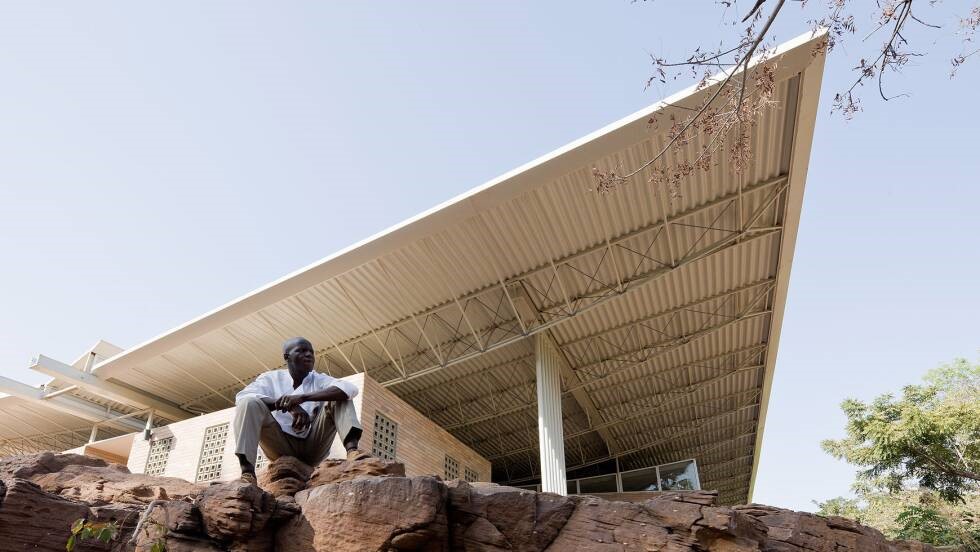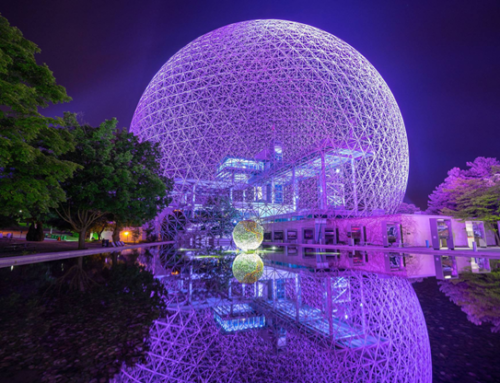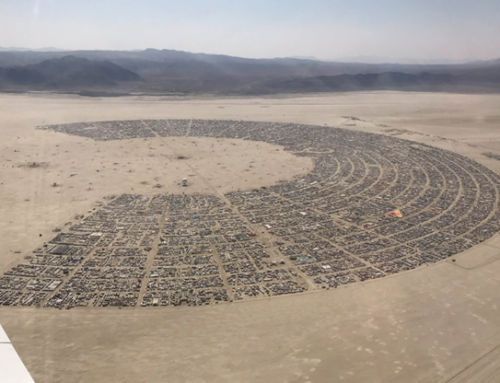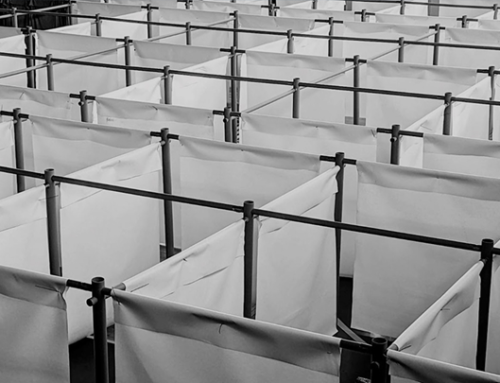We are impressed by the bravery and the sincere concerns he has as an architect with a mission towards social justice. Diébédo Francis Kéré, architect, educator, and social activist, has been selected as 2022 Laureate of the Pritzker Architecture Prize. Kéré, is the first Black architect to receive the Pritzker, pursues a rigorous social mission designing sustainable buildings with a meaning.
“I am hoping to change the paradigm, push people to dream and undergo risk. It is not because you are rich that you should waste material. It is not because you are poor that you should not
try to create quality,” says Kéré. “Everyone deserves quality, everyone deserves luxury, and everyone deserves comfort. We are interlinked and concerns in climate, democracy, and scarcity
are concerns for us all.”
Natural simple materials using local handcraft can be the solution for many of our human and environmental issues. More impressively, these designs can be very creative; respond to the
local climate, and provide housing and schools in places that lack these basics. It is the first time the voices of alarm for our human and environmental crisis is becoming loud enough to
choose the creator of the humble architect as the winner for the most prestigious architectural award.
We are seeing a growing voice against wasting materials, energy, and lands when others can’t find even a small shelter to live in much less under.
This architect, Francis Kere, was born in Gando, Burkina Faso and is based in Berlin, Germany. He empowers and transforms communities through the process of architecture. Through his
commitment to social justice and engagement, and intelligent use of local materials. He works in marginalized countries laden with constraints and adversity, where architecture and
infrastructure are absent. Building contemporary school institutions, health facilities, professional housing, civic buildings and public spaces, oftentimes in lands where resources are
scarce and fellowship is vital, the expression of his works exceeds the value of a building itself.
The impact of his work in primary and secondary schools catalyzed the inception of many institutions, each demonstrating sensitivity to bioclimatic environments and sustainability
distinctive to locality and impacting many generations. Startup Lions Campus (2021, Turkana, Kenya), an information and communication technologies campus, uses local quarry stone and
stacked towers for passive cooling to minimize the air conditioning required to protect technology equipment. Burkina Institute of Technology (Phase I, 2020, Koudougou, Burkina
Faso) is composed of cooling clay walls that were cast in-situ to accelerate the building process.
Overhanging eucalyptus, regarded as inefficient due to its minimal shading abilities yet depletion of nutrients from the soil, were repurposed to line the angled corrugated metal roofs,
which protect the building during the country’s brief rainy reason, and rainwater is collected underground to irrigate mango plantations on the premises. (1)
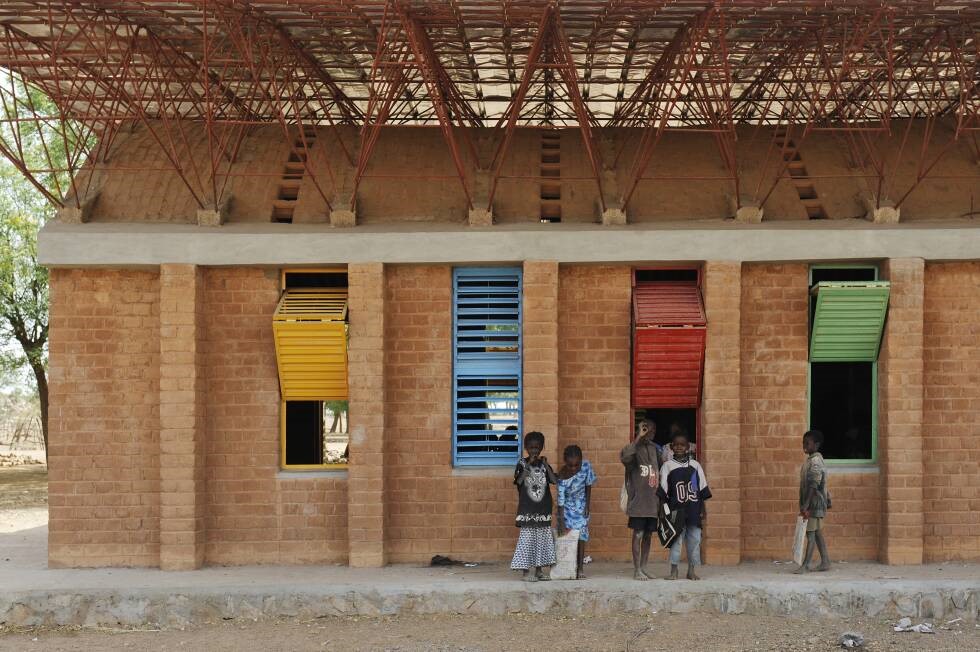
Our architectural practice has contributed to the creation of an inspirational infrastructure in Burkina Faso’s Gando that has seen the power of thoughtful, community-driven design come to fruition. (2)
Kere has won all of these awards through his humble yet environmental and social solving architecture: Pritzker Architecture Prize, Aga Khan Award for Architecture, Global Award for Sustainable Architecture
“At the intersection of utopia and pragmatism we create contemporary architecture that feeds the imagination… with a dual focus on design and social commitment,” Kere says.
This is a real social commitment! We need more Francis Keres. Maybe, some of our readers can take up this “baton”.
Resources:
1-https://www.bdcnetwork.com/diebedo-francis-kere-named-2022-pritzker-architecture-prize
2-https://www.kerearchitecture.com/
